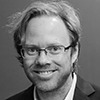Columns
Thomson Reuters Foundation revamps media development programmes
Sunday 22 March 2015
On the orange menu bar at the top of the Thomson Reuters Foundation’s Trust.org site, you’ll find a modest button marked Media Development. Over the years, the button has had several labels: Journalism Training, Trust Media, and most recently, Excellence in Journalism.
None of the labels did justice to the full spectrum of what the site section, which is anything but modest in aspiration, is all about.
Journalism Training only captured a small part of what we do. It excluded the ground-breaking research done by the Foundation-funded Reuters Institute for the Study of Journalism at Oxford University, for example, or the independent news services we’ve set up in Iraq, Egypt, Zimbabwe and soon in Myanmar.
Trust Media had an evocative ring to it. It hinted at the core principles at the heart of the Foundation’s work, embodied by the Thomson Reuters Foundation Trust Principles of impartiality, independence and integrity. But it never caught on as a brand, and it exuded something of the desperation of a politician pleading for your vote.
Meanwhile, Excellence in Journalism sounded vague, pretentious, almost schoolmasterly. Or worse, like a mail-order diploma.
So we’re back to good old fashioned “media development”. It may not be sexy, although it is a bit of jargon that has been known to induce hot flushes among people steeped in making the world a better place by supporting the Fourth Estate in countries where a free, robust press is limited or lacking.
The label aside, the point is that this week we unveil a brand new site section that we hope, finally, will capture the excitement of what the Thomson Reuters Foundation’s media development activities are all about.
For the first time, we answer clearly the question why. Why does the world’s leading provider of news and information provide philanthropic support to local journalists from Mauritania to Mongolia, Iraq to India?
this week we unveil a brand new site section that we hope, finally, will capture the excitement of what the Thomson Reuters Foundation’s media development activities are all about
The answer is straightforward but worth stating boldly: “We believe accurate, impartial and independent journalism leads to better-informed societies. It holds power to account, strengthens the rule of law and contributes to economic and social development.”
We then go a step further. What is our theory of change? This is a fancy way of saying how do we turn lofty ideals into actual results on the ground - including societal changes such as better governance and greater transparency? We lay out our theory plain to see, with a nice little diagram for the visually minded.
That’s the why and the how? Then there’s the what. Here’s where things get interesting. I wonder how many readers know the following:
- Over the years, the Thomson Reuters Foundation has provided free professional journalism training to more than 12,000 journalists in 120 countries on everything from covering health crises and disasters to reporting elections, business and finance, corruption and even sports.
- We’re now revamping such training to make sure it focuses on producing real journalism that is actually consumed, as widely as possible. That means using other tools such as project grants, ongoing editorial support, newsroom consultancies and channels for distribution and syndication.
- In addition to such bread-and-butter programmes as Reporting Business and Finance in the Digital Age, Advanced Photojournalism and Reporting on Women’s Rights, we’re introducing new initiatives like the All-in-One Multimedia Journalist, Editorial Judgment and Ethics, Reporting Aid Transparency and Corruption, Reporting Trafficking and Slavery and Reporting Religion.
- We’re also launching a number of “impact programmes” that will unfold over several years and embrace hundreds of journalists and dozens of media houses in developing countries. A good example is our Wealth of Nations programme supporting investigative journalism into illicit financial flows all across Africa.
- We strive to hold “leadership events” bringing together the top experts with journalists from around the world to debate the big issues reshaping the media landscape. This year we’ll be hosting our first-ever Global Media Start-up Seminar to help innovative news outfits thrive and survive in our digital age.
That’s just a taster. For more information, I encourage you to take a look at our new Media Development section or download our electronic brochure. As always, we welcome your feedback.
■
- « Previous
- Next »
- 32 of 65
